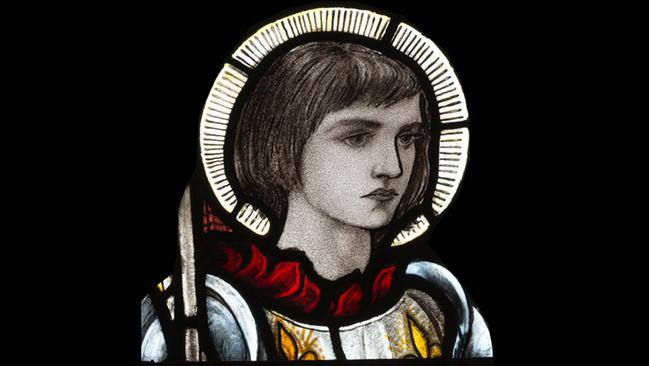Last Days of Jeanne d’Arc: Ali Alizadeh retells the passion
The sacking of Troy, Henry VIII and his wives, and the life and trial of Joan of Arc are among the brassy blockbusters of history.

The sacking of Troy, Henry VIII and his wives, and the life and trial of Joan of Arc are among the brassy blockbusters of history. What draws novelists, filmmakers, playwrights and other myth-makers back to these stories when they have been told thousands of times before?
Yes, they are action-packed and salacious. They are also incomplete, which opens them to the anxieties and obsessions of the latest generation of storytellers.
In the 20th century, Jeanne d’Arc’s story has been wheeled out whenever the French national spirit has needed to dust itself off or prepare itself for change. George Bernard Shaw wrote Saint Joan five years after France’s near annihilation during World War I and Ingrid Bergman played the title role of a Hollywood film immediately following World War II. Even now, Jeanne is the figurehead of France’s far right National Front.
So what is it about Australia’s present moment that sees the Sydney Theatre Company include Saint Joan in its 2018 season and Giramondo publish Ali Alizadeh’s novel The Last Days of Jeanne d’Arc? We are geographically far removed from France’s nation-building project.
Alizadeh’s emphasis is not on Jeanne as a symbol of French nationalism. The Iranian-born, Melbourne-based writer is critical of both the French and the English roles in her untimely and gruesome death. He sees Jeanne as a troubled outsider, terrorised by English armies, oppressed by French social convention and forsaken by the very leaders she helped put back on the throne.

This Jeanne is a lesbian or possible trans warrior who, though deeply religious, is sceptical of church politics. While this version of Jeanne is certainly shaped by a 21st-century imagination, Alizadeh is aware of his limitations and distortions, and is careful to support his interpretation with subtle reference to sources.
But he does not let any fussing over source materials compromise the damn good yarn Jeanne’s story is and has always been. Instead, he restores that essential element of the damn good yarn — the love story — to Jeanne’s myth. Alizadeh’s Jeanne is awkward but strong, prone to fits of anger but, most significantly, made vulnerable by the love of a woman.
We are introduced to Jeanne as she is forced into the dank stone cell she will occupy in the last days of her brief life. She is pining for a woman who is not yet named. She is 19 and all the victories that will see her immortalised are behind her.
Under pressure from her English guards, she has renounced everything that she previously claimed to be: she is no longer chosen by God, she cannot hear the voices of saints.
She now claims she desires to submit to the Holy Catholic Church and never depart from it. To not wear the rough white dress thrown at her feet would be a breach of this renunciation, Jeanne’s last attempt to save her life. She takes off her soldier’s tunic. The guards glimpse her breasts, her pubic hair. She dons the white dress and is frozen with embarrassment before having her ankles shackled to the stone floor.
After exposing our warrior heroine in the darkest hours preceding her death, Alizadeh races through 83 years of the Hundred Years War in three chapters. He takes a long focus here. We watch kings rise, go mad, fall. We watch England invade and burn France to the ground. We witness the power vacuum emerge after France’s mad King Charles dies. Alizadeh keeps the pace fast and his sense of humour intact, until, a little giddy from our whirlwind stint in a time machine, we catch our breath at the precipice of Jeanne’s entry into history.
Alizadeh’s short, sharp third-person narration helps him traverse history, but the unfortunate side effect is the diminution of Jeanne’s emotional depth. In these early chapters her nuance of feeling is shown through the occasional burst of tears. We feel for her at a remove, as we might feel for a tiger behind bars at the zoo.
About a third of the way into the book, however, we are met with a welcome break in style. Like an intruding radio signal, a first-person voice breaks through. We hear Jeanne’s voice as if we, too, are spoken to by our own disembodied saint. At last the long view of history is brought to life with the thrumming pulse of a woman whose heart — according to her executioner — would never burn down to ash.
Pip Smith’s most recent novel is Half Wild.
The Last Days of Jeanne d’Arc
By Ali Alizadeh
Giramondo, 288pp, $26.95


